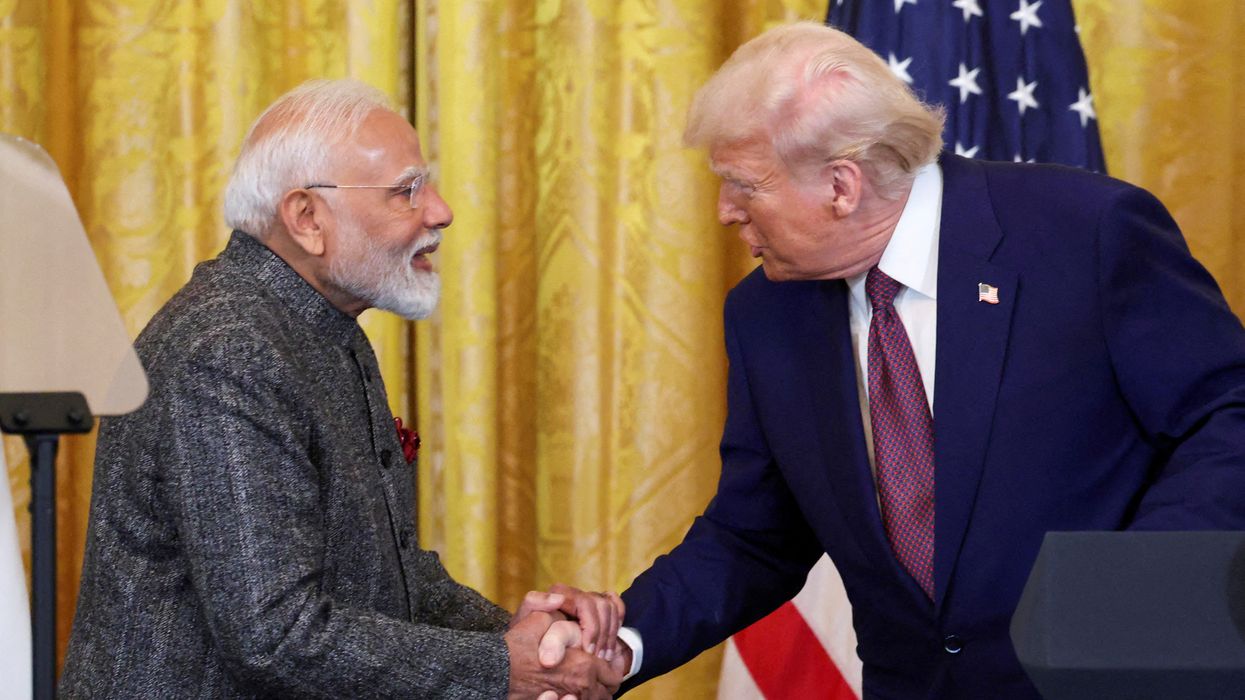AS the NHS is under severe strain with millions of patients on waiting lists for hospital treatment, and emergency departments unable to see patients promptly, Professor Kiran Patel is playing a major role in finding solutions to reduce waiting times and improve patient experience.
The consultant cardiologist, who serves as the chief medical officer and deputy chief executive of the University Hospitals Coventry and Warwickshire (UHCW) NHS Trust, is currently leading work on workforce development and quality improvement in the NHS.
Last year, the UHCW has developed new software that allocates priority for patients on the waiting list for planned care according to clinical as well as social factors, meaning the software can take health inequalities into account when prioritising patients for elective care.
For Dr. Patel, who grew up in a ‘two-up two-down terraced house’ in West Bromwich but graduated from Cambridge’s King’s College, the issue of equity has always been close to his heart. “As I grew up and went to university at Cambridge and subsequently started working, I suppose I personally experienced social mobility. But then I always wanted to go back and do something for the communities I came from,” he told a NHS Confederation podcast.
And with the Health Equity and Referral to Treatment (HEARTT) tool developed at UHCW, he believes we now have the capability to move beyond NHS England’s elective recovery plan, which prioritises those who have waited longest, but is prone to fuelling health inequalities.
The HEARTT tool accommodates evidence based clinical factors and builds upon those to add in factors which drive or are proxy markers for inequality. For example, a patient from a deprived area could sometimes be pushed ahead of another patient from an affluent area, if deemed clinically appropriate.
He is well aware that this could open a thorny debate, but he avers that it’s high time we tackle the moral and ethical debates around equity of access to care.
“If we are to seriously utilise the potential of the NHS to reduce health inequality, it is time to have challenging moral and ethical debates, accepting the inevitable range of opinion,” he wrote in article in the Heath Science Journal. “How and how far we choose to go down the road of addressing inequality necessitates debate and discussion and whatever we decide to do or not do.”
Patel stresses that tool does not make middle-class or affluent patients wait longer for care, but it reduces the gap in waiting times between different categories, and the research has shown that more affluent people tend to access elective care more than more deprived people, who tend to access unplanned emergency care more.
“What we have done is reduce the waiting time for everybody, but we narrowed the gap, so there is now no differential,” he told the HSJ. “We have not made the affluent patient wait longer than they were. Simply, their reduction in waiting time has been slower.”
The project has generated significant interest across the NHS. While showcasing the first phase of the HEARTT tool in an NHS webinar in July last year, the UHCW has revealed that it is working with around 70 other NHS trusts to help them to adopt the software.
The origins of his work at the UHCW could be traced back to Sandwell, were he started his consultant life at Sandwell and West Birmingham NHS Trust. At Sandwell he developed a prevention programme for cardiovascular disease which helped to address health inequality in vulnerable groups.
After three years as a consultant, serving his local community, he was appointed as a clinical lead for the West Midlands Strategic Health Authority (SHA) and has since held several NHS leadership roles. He was regional clinical director for the QIPP (quality, innovation, productivity and prevention) programme at the SHA. He was then seconded to oversee the NHS transition as medical director for primary care in West Mercia.
Patel joined the UHCW in July 2019, after six years as medical director for NHS England (West Midlands), leading a range of work portfolios and partnerships, and managing significant transformational change.
It was at Cambridge University in 1993, where he met his future wife Emma – the couple has four daughters – and he played cricket alongside future England cricket captain and now broadcaster Mike Atherton. He was awarded a British Heart Foundation fellowship and did his PhD in Bristol, working on cardiac myocyte contraction. He has been a practising consultant cardiologist since 2005 and continues to practice despite a busy managerial role.
His parents migrated to the UK from Kenya before Patel was born, and they were a driving force behind his eventual career path. He credits the pair for their “support and sacrifice” and teaching him the importance of work, and the importance of staying humble.
“With those ingredients and an ambition to succeed, I was so proud when I not only got to read medicine, but got to read it at Cambridge,” he previously told the GG2 Power List. “I will never forget how proud that made my parents and I thank them immensely for their support and sacrifice.”
He has published two books and several academic papers, not only in the field of cardiology, but more widely on social determinants of health. He holds Honorary Professorship Chairs at both Warwick University and Coventry University and is a Fellow of the Royal College of Physicians.
He is an ardent supporter of the West Bromwich Albion Football Club, but he has got a broader involvement in the world of football, thanks to his research interest in sports cardiology and cardiomyopathy in the athletic heart. He is a member of the FA expert panel for cardiology and is cardiologist to many elite football, rugby and cricket clubs across the Midlands. Last year, he also started chairing the Premier League Clinical Governance Group.
His mission to tackle health inequalities is not just limited to his workplace. He founded the South Asian Health Foundation charity in 1999, which promotes good health in the UK’s South Asian communities. In the field of ethnic health, the charity provides community engagement, with education and resources delivered at a grassroots level; develops and delivers education and resources for healthcare professionals and catalyse high quality research and development.
Patel’s work is driven by a crucial understanding that we often forget the very vulnerable people who need our help and leadership. “And unless we are their advocates, we will continue to see health inequality,” he asserts.













